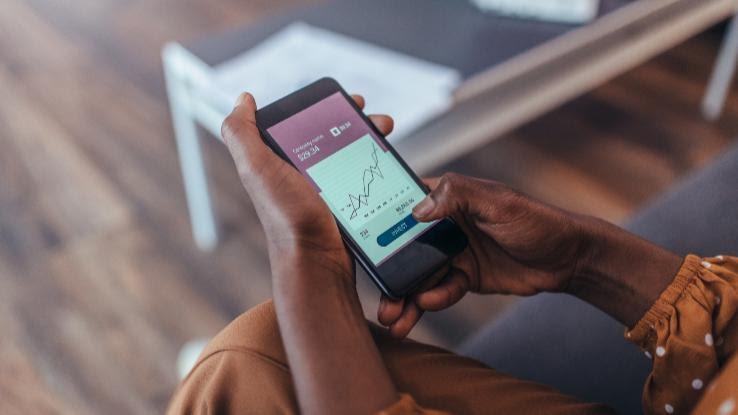
Years ago, paying commission fees to brokerages was an inescapable reality of investing. If you wanted to buy stocks, you went through a broker, who found a seller, processed your transaction and collection a commission payment for this service. Utilizing a brokerage’s services can be a valuable way to learn some of the ropes with investing, and it’s important to compensate brokerages fairly for their expertise. But if you’re just getting started, you might not be ready to hand over the profits on your returns so quickly — and you might also want to practice on your own to build your independence.
While many brokerages still do charge commissions, there are now also plenty of commission-free brokerages that don’t. We’ll take a look at the commission-free trading movement, what it’s meant for investors, and the pros and cons of commission-free trading. We’ll also look into how commission-free brokerages maintain their ability to make money after waiving these payments.
The Rise of Commission-Free Brokerages

Back in 2013, online brokerage Robinhood began shaking up the world of investing by offering everyone the chance to trade stocks for free. Robinhood states that its mission is to “democratize finance for all” by offering younger and less-affluent investors the opportunity for easier entry into the stock market.
At the time, this was a revolutionary idea; many brokerages traditionally made money by charging their clients fees every time they bought a stock, option or mutual fund. Additionally, many brokers charged annual brokerage fees for all of their accounts, along with others like advisory and management fees.
While some fees were higher than others, brokers used them to make a great deal of money, which came directly out of the profits of the investors they managed. Once Robinhood introduced the concept of commission-free trading, however, things began to change dramatically. Inexperienced investors who weren’t able to put as much money on the line — or sacrifice potential earnings to cover commission payments — found that a major barrier to entry had dissolved.
To keep up with the new competition, many other brokerages began following suit. Now, there’s a large number of online brokerages where you can open an account and begin trading stocks and other assets without needing to pay commission. Some of the better-known commission-free brokerages include:
- Robinhood
- TD Ameritrade
- Webull
- Interactive Brokers
- SoFi
- E-Trade
- Charles Schwab
Each of these brokers allows you to trade for free with no minimum account requirements — which can raise questions about how they maintain their ability, financially speaking, to continue providing services.
How Do Commission-Free Brokers Make Money?

To answer this question, let’s go back to Robinhood, the commission-free brokerage that sparked this trend. According to Robinhood’s website, the company’s revenue is generated by things like:
- Rebates from market makers and trading venues: When you make a trade through your Robinhood brokerage account, your order isn’t necessarily filled by Robinhood itself. Instead, it’s sent to a “market maker” or, in the case of cryptocurrency, to a “trading venue.”Robinhood uses a routing system that’s meant to direct your order to the market maker, who then gives you the best execution rate when completing your transaction. These market makers and trading venues then pay Robinhood for sending business their way.
- Robinhood Gold and stock loans: While trading on Robinhood is free, users have the option to upgrade to a premium service called Robinhood Gold. One of the things Robinhood Gold offers is margin lending, which essentially means it loans investors more money to invest. To trade on margin, however, you’ll have to pay a monthly fee, which, depending on how much money you borrow, can start off at around $6 per month. The more money you borrow, the more fees you’ll have to pay. At a certain point, you may also have to pay an interest rate on the money you borrowed. By loaning out margin securities that investors use to buy assets, Robinhood, in turn, makes money.
- Income generated from cash: If you have uninvested cash sitting around in your Robinhood account, then the company may invest it into an interest-bearing bank account. This can generate a profit for the company, though it still must be able to provide the cash for you at any time if you choose to withdraw it or use it to trade.
- Cash management: This mostly refers to interchange fees that Robinhood generates by offering a debit card that you can connect to your account. Such fees are fairly common among debit and credit card issuers and are meant for covering things like fraud loss and transaction fees.
While we may have focused on Robinhood in the explanations above, such tactics are fairly common among commission-free brokerages and can give you a broad idea of how they’re able to generate income.
What Are Some Pros and Cons of Commission-Free Trading?

The pros of trading with a commission-free broker are pretty straightforward. Not only can you save hundreds of dollars each year in fees, but you also have the freedom to experiment with your trading style. If you choose to take up day or swing trading, then the savings you’ll score by going with a commission-free broker can be substantial.
That said, as any experienced day trader can tell you, not all brokerages are created equal. You might take some time to acclimate to the lightning-fast speed of a paid day-trading platform, which can cost you profits when seconds count.
Another potential downside for some investors has to do with the above-mentioned market makers that execute your returns. Some high-frequency trading (HFT) firms engage in a controversial practice that amounts to buying your order and then delivering it by quickly selling it back to you at a slightly higher price than you anticipated. While this does happen, the difference in price usually only amounts to a fraction of a cent. In other words, it’s still far less than you would’ve paid for a trading fee.
What to Expect From Commission-Free Trading

Commission-free brokerages can be a great option especially if you’re new to investing or have a smaller amount of capital to invest. Some of the things you’ll want to research when choosing which brokerage to go with include the following:
- What assets are available to trade for free? It’s a safe bet that you’ll be able to trade stocks for free at pretty much any commission-free brokerage you go with. Some brokerages, such as Webull and Robinhood, also offer free cryptocurrency trading for a number of popular coins, while others don’t offer crypto trading at all.You’ll also find plenty of exchange-traded funds available to trade for free, but there may be fees associated with things like mutual funds and options. Make sure you understand whether or not there are — and, if so, how much they cost.
- What type of research information is available? The more you research the market and the different ways to select the best stocks, the more important research tools will become. Some brokerages offer more detailed stock information than others as far as news, level 2 data and analysis are concerned. Others, such as Robinhood, tend to be pretty bare-bones, but this may be appealing when you’re first starting out and want to take things slowly.
The important thing is to make sure to ask around and do a bit of research to make sure you select the best broker for your needs.





